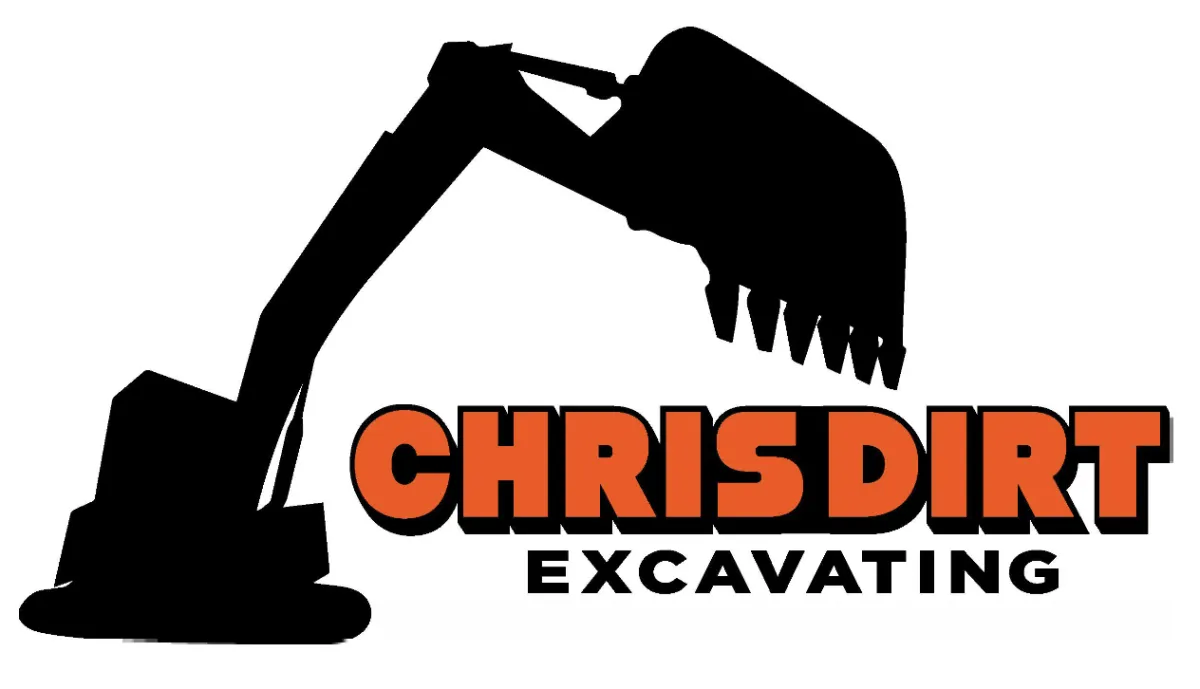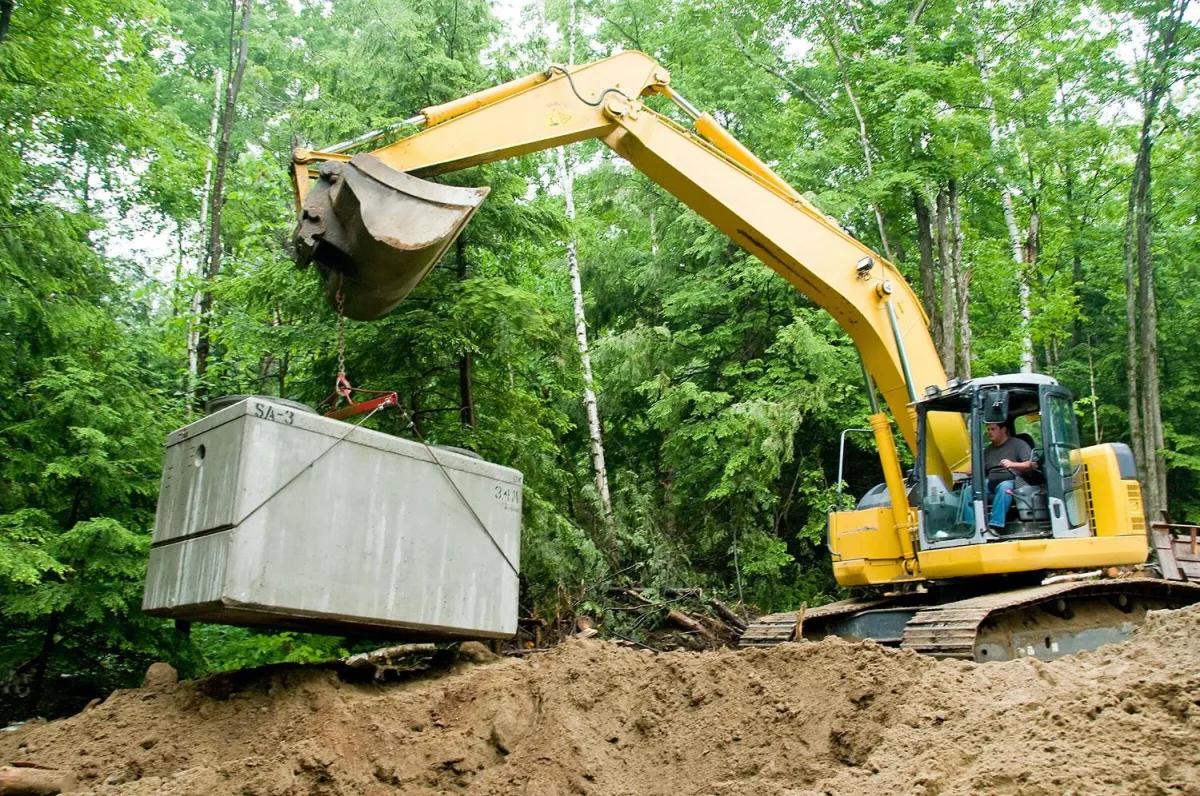
Serving Michigan Counties: Ottawa, Allegan, Kent, Muskegon, Montcalm, Barry, Ionia

A No-Nonsense Guide to Choosing the Best Septic System for Your Property Near Holland, in Ottawa County
1. Why Choosing the Right Septic System Feels So Overwhelming
You’ve got land. Maybe you're building a home. Or maybe you're replacing an old system that’s been giving you grief for years. Either way, you’ve hit a wall: “What kind of septic system do I need? How much is this going to cost me? Who can I trust to do it right?”
If you're feeling unsure, maybe even a little frustrated — you're not alone. Septic systems aren’t exactly cocktail party conversation, but they’re a huge part of living outside city sewer lines. And making the wrong choice can cost you big in the long run — in money, time, and headaches.
We’re Chris Dirt Excavating, and we install septic systems every week across Ottawa County — from Holland and Zeeland to the backroads of Coopersville and beyond. We know what works here because we live here, too. We're not some giant firm with cookie-cutter answers. We listen. We dig (literally). We get the job done right for your property, not just the paperwork.
So let’s cut the fluff and walk through the real deal on picking the best system for your land.
2. First Things First: What Type of Property Are We Talking About?
Every property is different. Some are wide open and flat. Others are wooded, sloped, or just plain wet. Here’s how that plays into your septic options:
Residential new construction? You'll likely have more flexibility.
Cabin or seasonal use? You might not need the Cadillac of systems.
Replacing a failed system? You’re probably dealing with space or soil limitations.
Tight urban lots or waterfront? You may be looking at more advanced solutions.
The system that works great for your cousin’s 10-acre farm might be a disaster for your half-acre lot in Holland Heights. That’s why step one is understanding your land.
3. Know Your Soil: Why It Matters More Than You Think
This is the part nobody thinks about — until it matters. And it always matters.
In Ottawa County, we see a mix: sandy soils, heavy clays, high water tables, and everything in between. Your soil affects how your wastewater gets filtered. Too fast, and it pollutes the groundwater. Too slow, and you’ve got a backyard swamp.
Before anyone can install a system, a certified soil evaluation (or "perc test") needs to be done. This tells us:
How well water drains through your soil
How deep the water table is
What kind of system the county will even allow
We’ve seen people spend thousands designing the “perfect” system — only to find out their soil won’t support it. Don’t do that. Start with the dirt.
4. The Main Septic System Types (And Which One Might Fit Your Lot)
Let’s break down the top contenders:
Gravity Systems
Best for: Sloped lots with great drainage
Why people like them: Fewer moving parts, lower maintenance
Watch out for: Not allowed everywhere, needs good soil
Pressure Distribution Systems
Best for: Flat lots or tricky drain fields
Why people like them: Even water distribution = better filtering
Watch out for: Needs a pump = more upkeep
Mound Systems
Best for: Poor soils or high water tables
Why people like them: Can work when nothing else will
Watch out for: Costs more, needs space, not everyone's favorite look
Aerobic Treatment Units (ATUs)
Best for: Tight lots, environmental zones, high-efficiency homes
Why people like them: Treats wastewater more thoroughly
Watch out for: More expensive, regular maintenance required
Drip Distribution
Best for: Landscaped properties, shallow soil over rock
Why people like them: Low profile, evenly disperses water
Watch out for: Technical, needs filters and controls
The “best” system isn’t the fanciest. It’s the one that works with your soil, your property layout, and your budget — without giving you trouble every year.
5. Septic System Cost Breakdown in Ottawa County
Alright, let’s talk money.
In our region, expect to pay $7,500 to $15,000+ for a new septic system, depending on:
Soil conditions
System type
Tank and drain field size
Site accessibility
Permit and engineering fees
💡 Gravity systems are usually the cheapest. Mound or ATU systems? Plan for the higher end.
Also, don’t forget long-term costs. Pumping, inspections, maintenance, potential repairs — it all adds up. A slightly more expensive system up front might save you thousands in the long run.
6. Plastic vs. Concrete Tanks: What Local Homeowners Should Know
People love to debate this one, so here’s the scoop:
Concrete Tanks
Strong, heavy, long-lasting
Harder to damage during installation
Won’t float in high water areas
Plastic Tanks
Easier to install, no heavy equipment needed
Won’t crack from freezing
Can shift if not properly anchored in wet soils
In Ottawa County’s mix of sandy and clay soils, both can work — if installed correctly. We choose based on the soil, access, and your long-term plans. There’s no one “right” answer here.
7. The Role of Permits, Inspections, and Local Rules in Ottawa County
This is where homeowners often get surprised. Even if you live outside city limits, you can’t just put in a tank and call it good.
Here’s what’s involved:
Health department permits
Soil tests by licensed evaluators
System design by approved engineers (in many cases)
County inspections during and after installation
Cutting corners here can lead to delays, fines, or a system you’re forced to rip out later. We've worked with the health departments in Ottawa, Kent, Allegan, and beyond — and we know what flies and what doesn’t.
8. Mistakes That Could Cost You Thousands (And How to Avoid Them)
Here’s what we see too often:
Hiring based on the lowest quote
The cheapest bid is cheap for a reason. Ask questions. Get references.Installing before soil is tested
Big no-no. You might build something the county won’t approve.Ignoring long-term maintenance
A system that’s never pumped or inspected will fail early — no matter how well it was built.Not planning for access
Think about how trucks will pump your tank later. No one wants to dig up their patio in five years.
9. When to Schedule Your Installation (Weather and Timing Tips)
In Michigan, timing matters. Heavy spring rains? Frozen winter ground? They don’t mix well with trenching and tank placement.
Best time to install? Late spring through early fall — before the frost returns.
Need a replacement fast? We can work year-round, but costs might be higher in bad weather.
Building new? Don’t wait until framing is done. Get your septic plan early.
10. Choosing the Right Septic Contractor Near Holland
Here’s what we’d look for if we were you:
Local experience (and we mean local — Ottawa County rules can differ from Muskegon’s)
Licensed, insured, and willing to explain things in plain English
Clear pricing, no vague estimates
Respect for your land — from cleanup to final grading
At Chris Dirt Excavating, we’re not trying to upsell or slap a system in and disappear. We work with you to make sure you get a setup that actually works — one that fits your land, budget, and long-term needs.
11. There’s No One-Size-Fits-All System — And That’s Okay
If you’ve made it this far, you’re probably realizing: picking a septic system isn’t just picking a tank. It’s about your land, your lifestyle, and your long-term peace of mind.
You don’t need to know everything — but you do need someone who listens, explains things clearly, and actually gives a damn about doing it right.
That’s where we come in. We’re Chris Dirt Excavating — local to Holland, working across Ottawa, Kent, Allegan, and beyond. We're not here to impress you with buzzwords or sell you more than you need. We're here to help you choose what’s actually best for your property.
And if you’re ready to talk? We’re ready to listen.